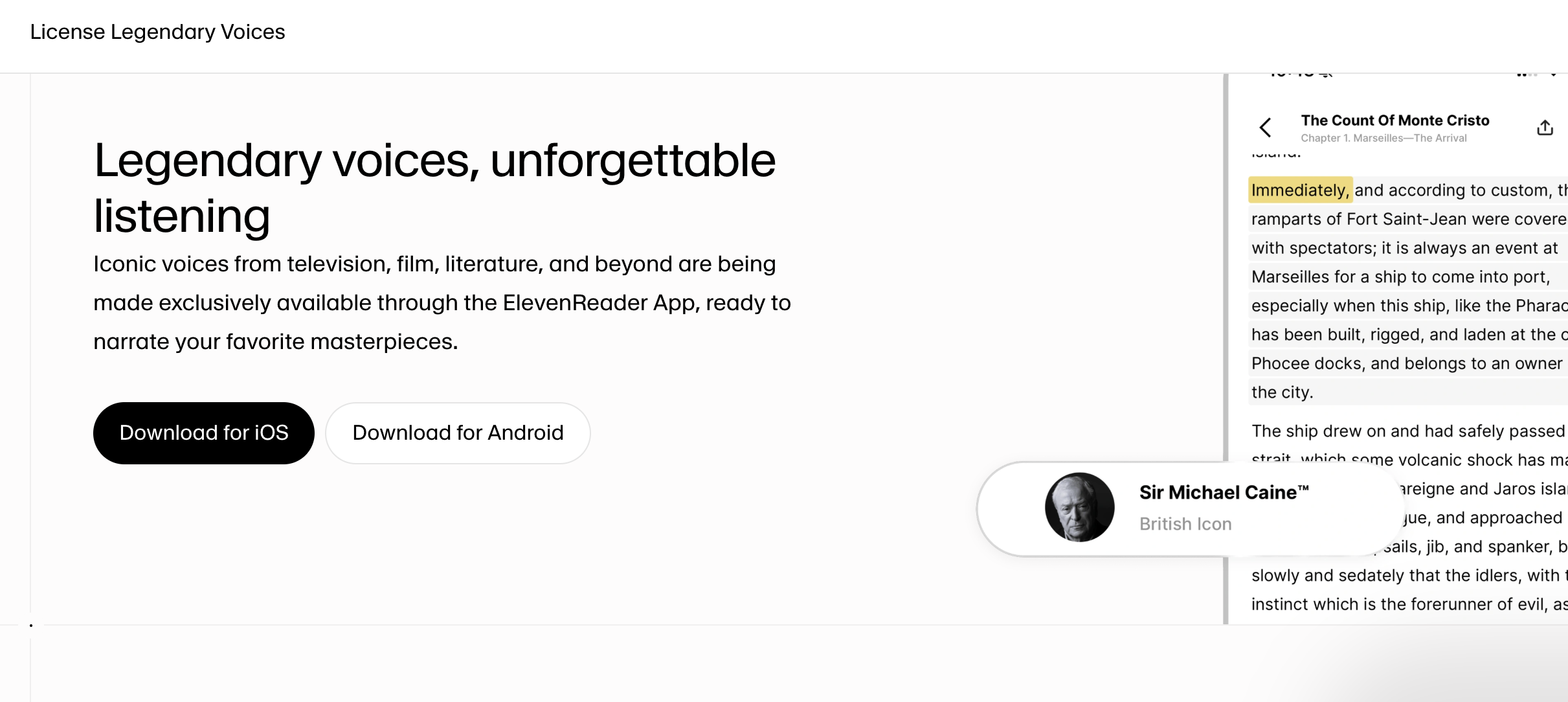Comet: The New AI Browser That Actually Does the Work
The web is stuck in 2008: billions of tabs, a search box like a slot machine, and whatever “productivity” means this week. Perplexity’s new browser, Comet, is a different bet. It looks like Chrome, but it behaves like an operator. It’s a single-click assistant that can read, click, type, buy, schedule, and synthesize without making you open five new apps and an ulcer.
Yes, it’s still a limited release (more on that below). And yes, it runs fine on a PC laptop now – so it’s not just for the Mac crowd anymore. The question is simpler: does it clear the bar of “useful on day one” or is this another over-promised AI toy? Spoiler: I’m typing this from it.
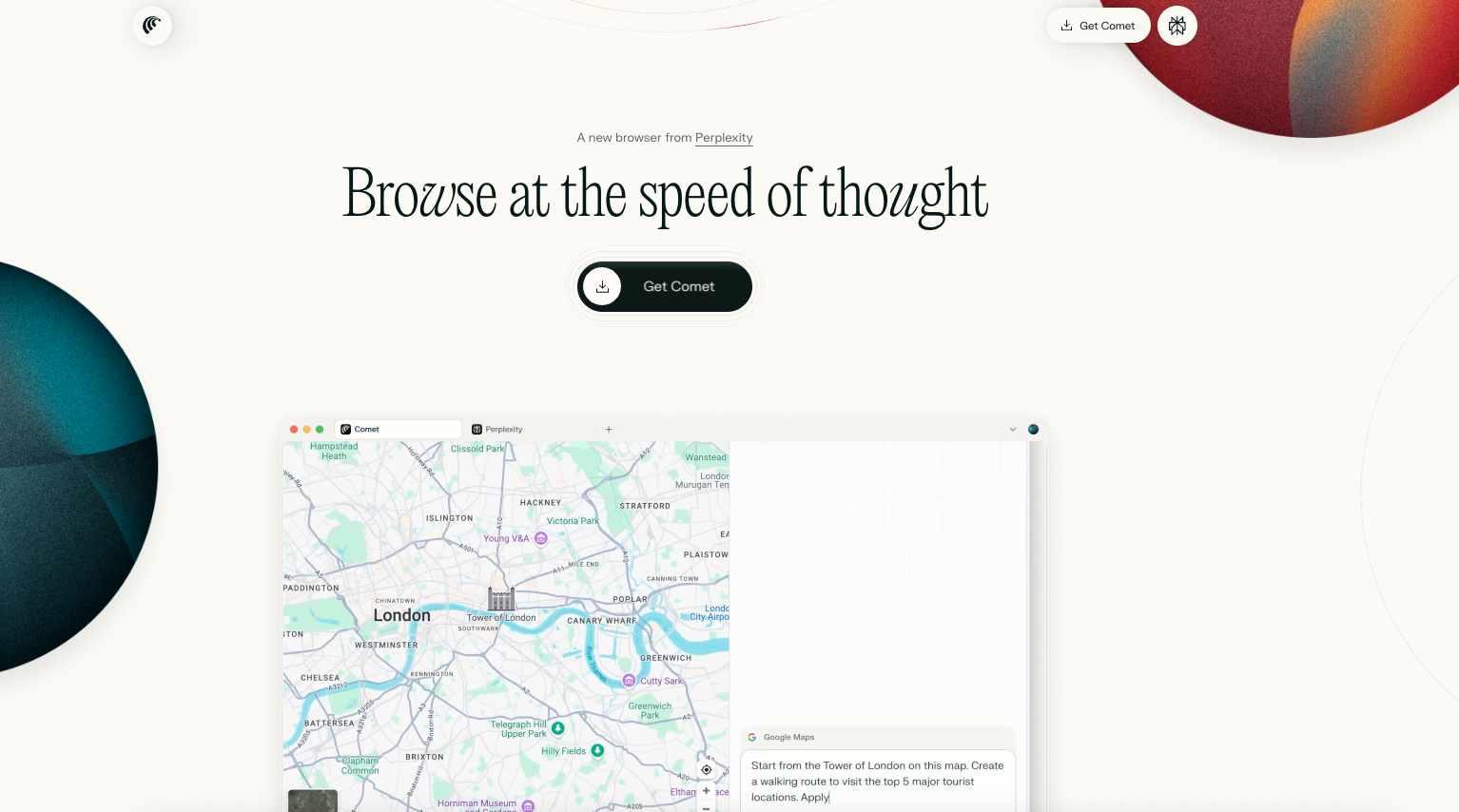
Beta status & availability
Comet launched July 9, 2025, and is currently available to Perplexity’s Plus and Max subscribers, with invite-only access rolling out to the waitlist over the summer. That was Perplexity’s official line. Several outlets and early reviewers also describe the current build as beta/limited. It’s improving quickly but not yet a full public release.
That said, earlier this week, Perplexity announced that Comet is now rolling out to all US-based Pro subscribers, with global expansion planned weekly until it's available to all Pro users worldwide. Max subscribers get an exclusive "Max Assistant" mode that's more reliable and powerful for complex tasks.
First impressions & setup (on Windows 11)
Install felt like Chrome’s: painless, fast, no “link your life” gauntlet before you can click around. Onboarding is short and — hallelujah — shows capability instead of promises. Within minutes I had my tabs, bookmarks, and basic settings in place.
The UI is “familiar in the best way.” It’s Chromium under the hood, so the address bar, tabs, and menus don’t need re-learning. What’s new is the assistant’s presence — always there, never in the way — and a home screen that treats research as a first-class citizen.
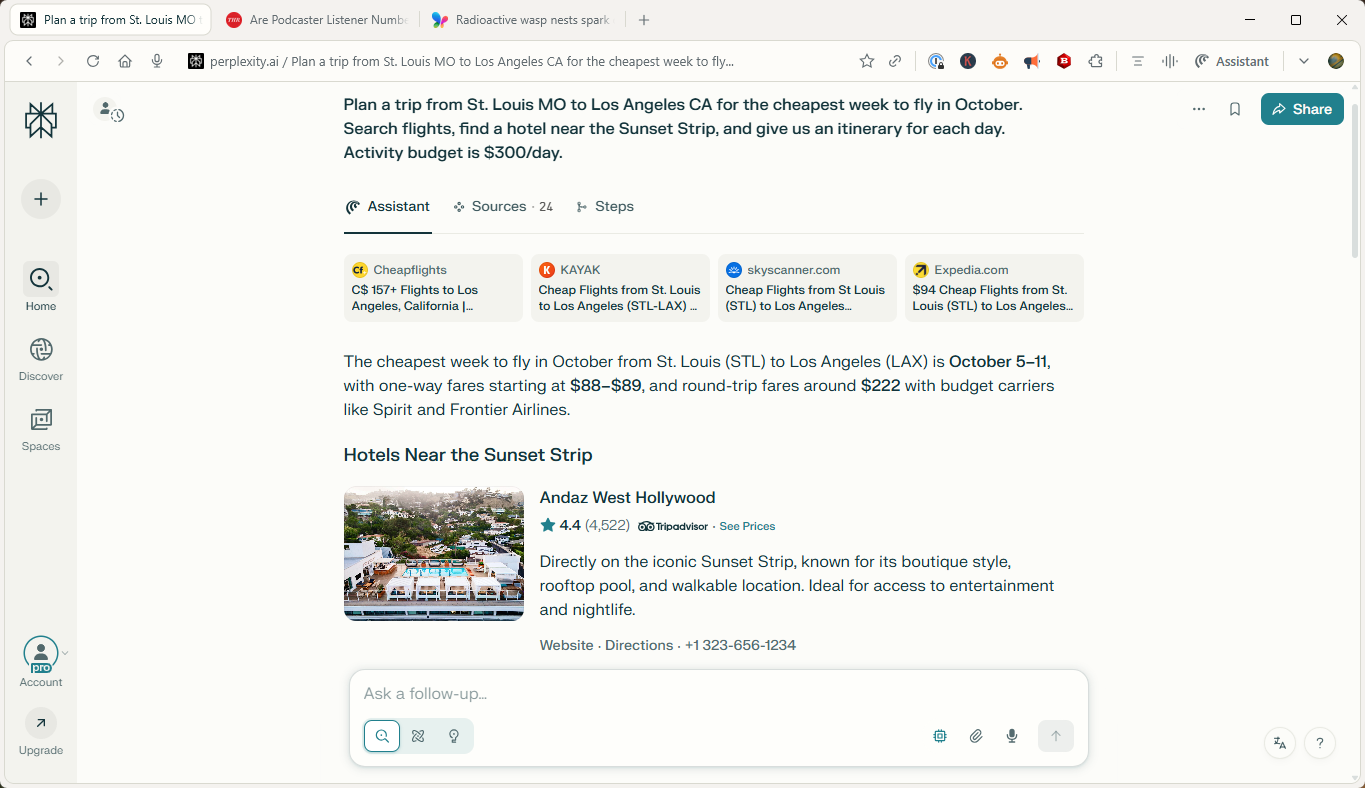
Widgets & the quick-access surface
Comet’s widgets are light, contextual panels of summaries, actions, and references, that augment the page without hijacking it. They pin, dismiss, and reappear quickly, more like native controls than a bolted-on toolbar. That balance matters: power when you want it, a clean canvas when you don’t. (Perplexity’s own material leans heavily on this “think with you” framing, and in practice it mostly lands.)
The only early nit: widget/home-screen setups don’t always sync cleanly across machines yet, which undercuts the “pick up anywhere” story for multi-device folks. It’s a small thing that becomes a daily paper cut.
Chrome extension compatibility
Because Comet is Chromium-based, your Chrome extensions come along for the ride. Password managers (my 1Password), note clippers, ad blockers, dev tools, and even my Beyond20 extension for D&D night. No cold-start penalty, no “we reinvented permissions” weirdness. If you live in Chrome’s ecosystem, that’s the difference between trying a new browser and actually sticking with it.
One nice touch: import flows for bookmarks, settings, and (in some cases) extensions are smooth enough that day one feels like day 101. You don’t rebuild your life; you keep it, it’s just now packed full of great AI models.
Home screen as a research hub
Comet’s home screen doesn’t hide the good stuff in side menus. You get straight shots into outline → sources → comparisons → synthesis, the way you’d actually move through a problem. It compresses the gap between “open a tab” and “produce a structured answer.”
The bigger shift is mental: search becomes conversation, and conversation becomes action. Instead of bouncing through five result pages, you ask for the structure and Comet stitches together a working draft with sources. Then you can refine or hand off to the assistant for execution.
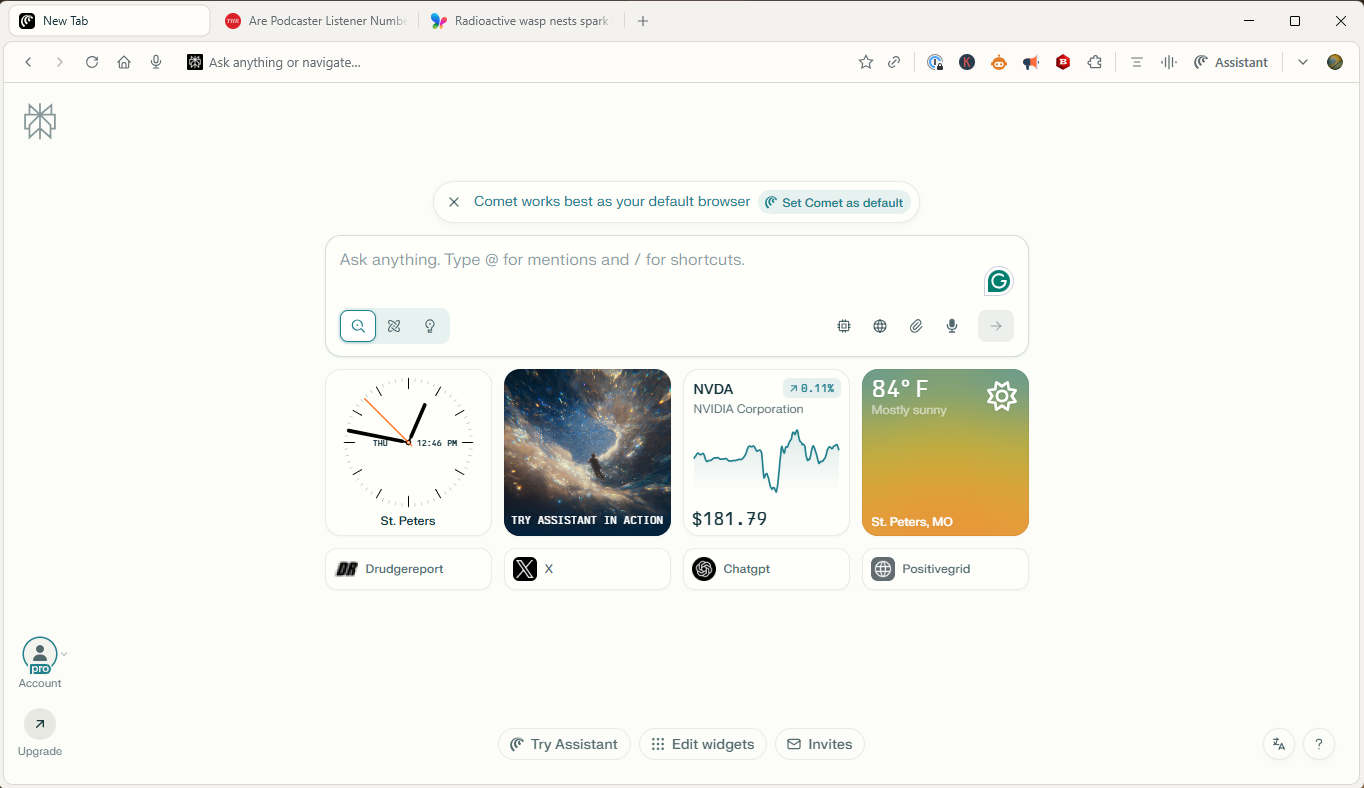
Assistant as an operator (and a quick road-trip test)
When I first opened Assistant, it flashed up my home address as well as some neighboring view as it demonstrated planning a trip. It planned a scenic Paris to Barcelona drive with three specific stops. It negotiated routes, time windows, and options, then handed back a structured plan with links. This is its superpower: operating within the web like a competent human, not merely describing the steps for you to perform.
Third-party reviewers have pushed this further, accepting LinkedIn requests, unsubscribing email, booking tables, even purchasing items with Comet logging each step and asking for confirmation before money moves. It’s not perfect (some tasks are slower than doing it yourself), but it does work, and when it does, it feels like future-normal.
Performance & polish
On my PC laptop, page control is snappy and scroll/transition polish reads like a mature browser, not a science project. Invoking widgets or the assistant has minimal latency, and the micro-copy (the tiny bits of language that cushion complex actions) feels thoughtfully edited rather than chirpy.
The rough edges are where you’d expect in beta: an occasional stumble in complex, multi-step flows; a prompt you need to rephrase; a control that’s a beat late to appear. But the overall impression is more production-grade than “interesting prototype.”
Day-one utility
Because extensions just work, you don’t lose your core stack. Add the assistant and suddenly your browser can do the tedious bits, like compare products, extract quotes with citations, draft an outline from three sources without visiting a separate “AI app.” That reduction in tab-flipping is a bit addictive.
Comet’s cadence encourages a new habit: ask for structure first (what to compare, which constraints, which trade-offs), then refine. By the time you’d normally have five tabs open, you’ve got a working brief you can export or iterate. It’s a small re-wiring that pays hourly dividends.
But the coolest part, in my opinion as a certified tab monster, is that you can organize your browser tabs with a simple prompt.
Where it could grow
A unified command palette (widgets + extensions + assistant actions) would make the power discoverable and fast. If Comet wants to be muscle memory, give me one place to type “unsubscribe,” “@tab summarize,” “export to Doc,” or “toggle tracker-blocker,” and let me bind those to hotkeys.
Exports are the other missing rung. Direct, one-click shuttles to Calendar, Docs, Notes would collapse yet another step in the workflow (many reviewers are doing this manually or via copy-paste today). Workspace presets—a research layout vs. a writing layout—would also help you swap mental modes without dragging panels around.
Limitations from early users & reviewers
Access is still a bottleneck. The Max-first and invite-rolling felt random, which frustrated the curious and created the (mistaken) perception that you must pay $200/month to try it. That was true at launch, but broader rollout is happening now, so now anyone at the $20 tier can use it. In operation, agentic tasks can be slower than doing it yourself, and there are occasional errors or dead-ends—not surprising for a first release of an AI operator. A few reviewers flag privacy/data-handling questions typical of AI browsers; Perplexity’s CEO emphasizes client-side context use and logs/confirmations, but this is an area to watch.
Early users on Reddit have been torn about Comet: one reviewer watched it automatically delete emails and felt “impressed and unimpressed at the same time”—it worked, but they could've done it faster manually. Others called it “slow and laggy,” while some made it their default browser entirely. We kinda get that, but at the same time, if you're using Comet to do something and then... just watching it do it... you're not using AI the way AI is meant to be used (you really should be multi-tabbing, multi-tasking lots of things you need to get done at once and then going back and checking on the status of them as they come along).
Who it’s for
If you want a browser that’s also an operator—able to act on pages and return structured outputs—Comet is for you. Researchers, writers, analysts, founders: the people who live in the browser and value synthesis more than page-collecting will feel at home immediately.
If you’re deeply invested in a Chrome extension stack but want a smarter first move than “search, click, pray,” Comet offers a way to keep your kit and add a capable co-pilot.
Basic spec sheet (PC-relevant)
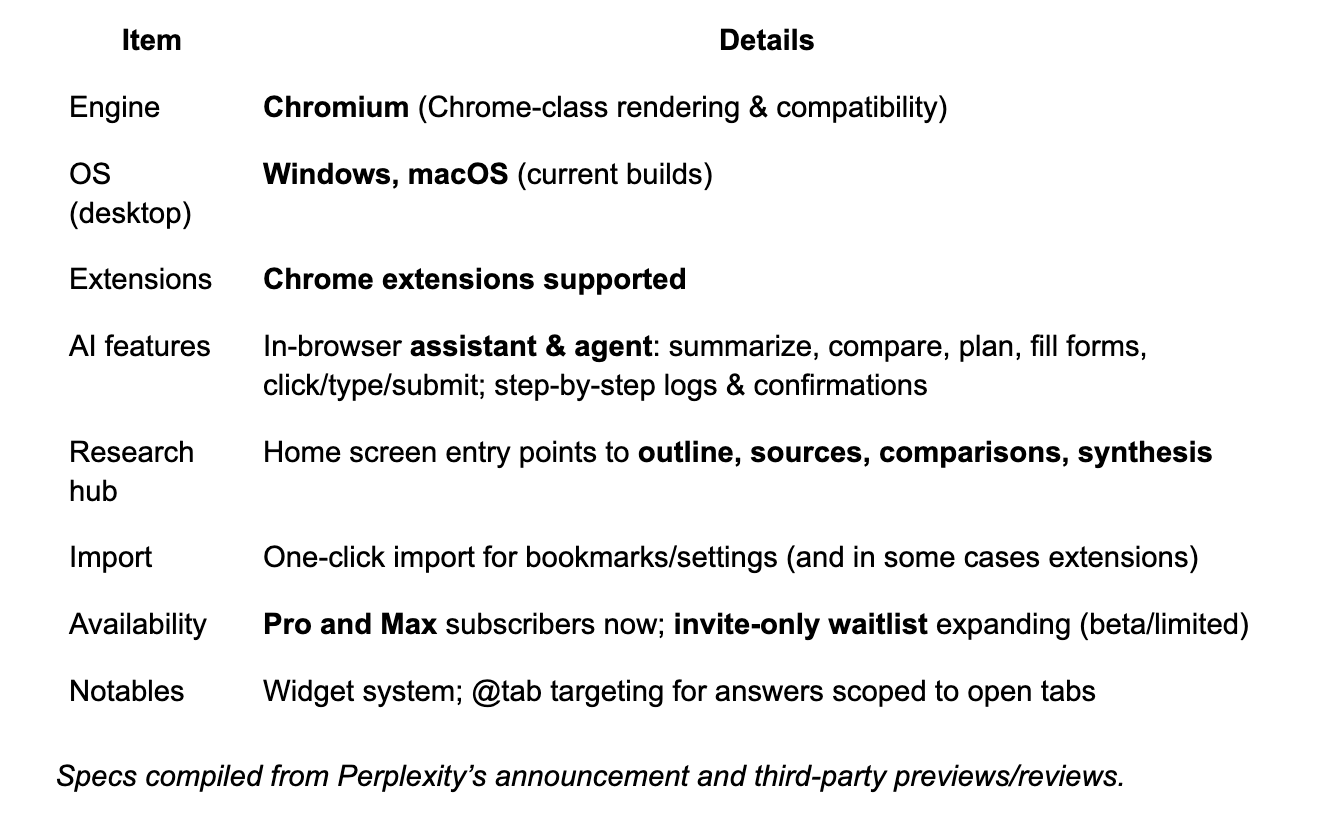
Bottom line
“Comet feels like Chromium with a built-in research and task co-pilot. The intro and setup are slick, widgets are genuinely helpful, and Chrome extensions just work—so I kept my whole toolkit. From the home screen I can jump straight into deep research, and when I need execution the assistant operates the web for me. It’s fast, polished, and familiar in the best way.”
The take that matters
Browsers used to be windows. Comet wants to be hands—a pair that can follow instructions, keep context, and ship a result. It’s not flawless, and the access story still needs to settle. But it’s the first mainstream attempt that feels less like “AI bolted on top of Chrome” and more like a browser rethought around action. If that’s the direction the web is going—and I think it is—Comet is a credible early map.
That said, it's not the only option. Fellow AI browser Dia, which we’re itching to get our hands on to test, is also out there and in early beta testing for folks who get access (for example, if you were a previous Arc browser subscriber). Let’s also not forget: OpenAI is cooking up its own browser plans, too, which based on some new leaks, will allow you to finally use ChatGPT Agent on your own computer (and not some instance spun up in the cloud managed by OpenAI).
Both Perplexity and OpenAI have been interested in possibly buying not only their rival Dia (owned by The Browser Company), but Google Chrome (if it’s spun out of Google by the DOJ). With the right combination of features and momentum, any of these players (OpenAI, Dia, Perplexity) could give Chrome, Safari, and Edge a run for their money... and introduce the internet to an entirely new way to, well, surf the web.





